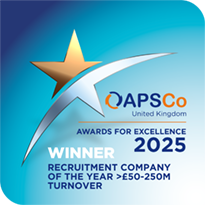There's a great deal that businesses an do across the nuclear supply chain to attract more women into the sector – as NRL’s Egremont Director Rebecca Graves discussed with In-Cumbria business magazine.
It’s a topic that’s regularly discussed across the industry, as top tier engineering companies launch training programmes to encourage more women into the nuclear sector.
To achieve a sizeable change in the gender balance of the nuclear industry however, both in Cumbria and across the UK, it will require a sector-wide approach across the supply chain.
For technical and engineering recruiters NRL based in Egremont, their forty years supporting the nuclear supply chain has given them first-hand experience of the challenges faced to recruit women into the industry. Director Rebecca Graves says although there has been some proactive work undertaken by many organisations, there is still a lot to do.
“It’s great to talk to leading engineering companies and hear everything they’re doing to attract more women into nuclear, but I believe this needs to be embraced across the entire supply chain to enact real change and reach diversity balance targets.
“Every business involved in the nuclear lifecycle from new build to decommissioning can play a part in identifying the changes they can make to drive forward gender balance.”
It’s a move Rebecca and NRL say is achievable if the industry works together.
“Practical steps include looking at setting up mentor programmes and a training programme to recruit women from complementary industry sectors and help bridge the gap in their nuclear knowledge.
Secondly, businesses can implement policies that advocate for a work-life balance. Offering flexible working options – such as remote working, part-time roles, and flexible working hours – can make the sector more appealing to women, particularly those balancing professional responsibilities with caregiving roles. It’s crucial that this support put in place also advocates for women to progress in their roles and aspire to be leaders – with initiatives implemented to help them progress their careers into the next generation of managers and directors.”
On the job training is also a great way to bring women into the industry, and organisations within the nuclear supply chain can even benefit from training funding from their clients. Under the Government’s apprentice levy scheme large employers can transfer up to 25 per cent of their levy funds to another business to undertake apprenticeship training. This could allow suppliers to work with their engineering clients to identify key roles to develop. Taking a collaborative approach to training within their supply chain, while opening job vacancies to women who do not have the direct experience for the role through a mutually beneficial training programme.
Rebecca says recruitment partners can also provide support to help organisations recruit more diversely.
“It’s something we’re extremely passionate about and are always keen to work with engineering companies big and small to look at how they can better position their roles to encourage more women to apply, and how they can best promote their business culture to ensure women can clearly see how they can forge a rewarding career within the organisation.”
Looking for support to build a more diverse workforce or interested in receiving NRL’s ED&I newsletter, then get in touch with Rebecca on rgraves@nrl.co.uk
You can read the full April issue of In-Cumbria business magazine online.


.png)


.png)



.jpg)